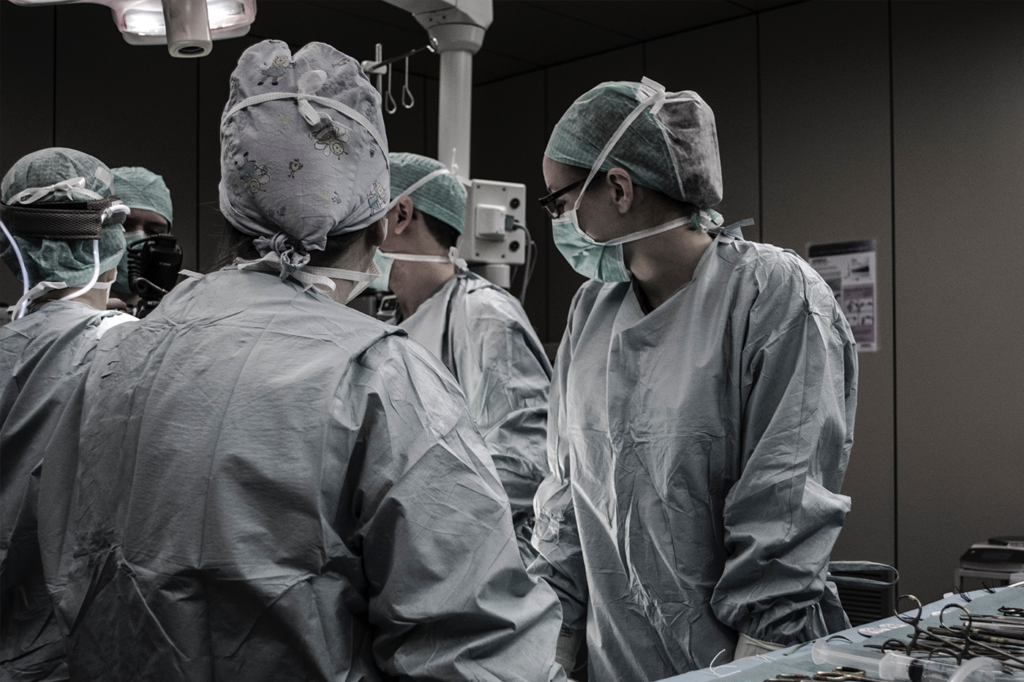This essay is part of our back-to-school series. See the full collection here.
Someone once asked anthropologist Margaret Mead, “What is the first evidence of civilization?” Mead thought for a moment and answered, “A healed femur.” She pointed not to a grinding stone or a religious artifact or a weapon, but to a healed thigh bone found in an archaeological site that was 15,000 years old. Why? The femur is the longest bone in the body and takes about six weeks of rest to heal. To survive a broken femur, this early human would have needed someone to provide food and drink, shelter, and physical protection for many weeks. Thus, the first indication of civilization is care over time for an injured person, evidenced in a healed femur.
As medical students, you are entering into a profession that has its origins in the very beginning of civilization. In the ancient world, only four occupations were considered professions: teachers, lawyers, priests, and physicians. All of these occupations are characterized by a fiduciary relationship in which the professional is in a privileged position relative to the other party. All required a public promise—a profession—in the form of an oath to fulfill this trust. In a few short years, you will also profess an oath to a vocation of healing and comforting. Regrettably, the oath you will profess will almost surely not be the one written by Hippocrates, which for millennia described the noble purpose of medicine and guided its practice.
Nevertheless, as you enter into this profession, I encourage you to “start with the end in mind” and study the Hippocratic Oath. Hippocrates is the best guide you can have in your journey. The oath continues to capture the essence of what it means to be a doctor and will teach you how to act toward your teachers (and later your own students), as well as your patients and their families. It articulates the true aim of medicine. The oath guides physicians to provide treatments that align with the purpose of medicine and so are right for a doctor to do, and to refuse to provide treatments that go against this purpose and are wrong for a doctor to do.
Start your day with Public Discourse
Sign up and get our daily essays sent straight to your inbox.So, what is the purpose of medicine? Informed by Hippocrates, physician and scholar Leon Kass has suggested that it is neither the gratification of the patient, nor the improvement of personal virtue or public order, nor the alteration of human nature, nor the prevention of death. Rather, the aim of medicine is simply the pursuit of health, defined as the “well-working of the organism as a whole.”
Throughout your education and training, you will need to consider whether what you are being asked to do, either by your teachers or by your patients or their families, is oriented toward this purpose, toward wholeness and well-working. Your work is a calling, and it is a sacred one: “to cure sometimes, to relieve often, to comfort always.” In seeking to cure, you will need to ask yourself if the side effects of the proposed treatments are disproportionate to the benefits or, in seeking to relieve suffering, if the measures are properly oriented towards well-working.
At times, you may be asked to do things that are morally wrong. Freedom is the ability to live in accordance with what you think is right (and wrong) and so to take conscientious actions. Such liberty is central to your well-being. The ability to conscientiously object is the only thing allowing you to take conscientious actions. Doctors refuse things that patients request all the time—antibiotics for viral infections, growth hormones for mildly short stature, opioids beyond an amount necessary for pain control—without any professional censure for these actions. Therefore, refusing to provide a medical service that you think is wrong almost always represents a dispute about the purpose of medicine. So, again, study the Hippocratic Oath! The only way to know that you are not cooperating with a corruption of the duties of a doctor is for you to know the purpose of medicine. Are your actions oriented toward pursuit of the patient’s health, toward the “well-working of the organism as a whole”?
As you work to provide the best possible medical care for patients, know that there are a great number of protections for healthcare professionals. The Health and Human Services’ (HHS) Office for Civil Rights now has a division of Conscience and Religious Freedom, dedicated to restoring enforcement of protections against coercion or religious discrimination for any entity that receives HHS funds, such as Medicare and all residency training programs that receive HHS funds. Protecting and defending the pursuit of health—and life—for your patients may not always be easy, but it is essential to the practice of good medicine. Your patients need to trust that you are dedicated to preserving and restoring them to health, and not dedicated to intentionally hastening or assisting in their death. This trust is the cornerstone of the doctor-patient relationship.
As a physician dedicated to the pursuit of health for your patients, you are also entrusted with grave responsibility by society, which, after residency, will have invested about $2 million in your education and training. You will be expected to be available to attend to a sick patient irrespective of their personal characteristics, treating justly all who seek your care: rapists, bigots, enemy soldiers; saints and sinners of all kinds. You will join a moral community whose members hold one another responsible for their actions, which often become problematic when doctors become more concerned with the secondary goods—money, prestige, honor—of medicine.
You, like most first-year medical students, will be introduced to the human body via an encounter with a dead body—a cadaver—in gross anatomy lab. Even so, if the purpose of medicine is to achieve wholeness and well-working in a live human being, you must remember that health is a functional capacity and not merely a structural one. Starting medical school by studying a dead body may convey a false notion of the purpose of medicine and your role as a doctor. It suggests that the purpose of medicine is the maintenance and repair of a physical object—the body—rather than the pursuit of health, and that the role of a doctor is one of a technician rather than a professional.
You have each received a privileged gift, one that is meant to be used in the service of others. As you enter medical school, study the Hippocratic Oath to embrace the true meaning and purpose of this ancient profession, and to learn which practices are appropriate and which are inappropriate to the purpose of medicine. Become aware of the legal protections available for you to act according to your conscience. Understand that you are being trusted by your patients and society to use your gifts—in combination with a balance of science and charity—to be the best clinician for the world. And remember that the pursuit of health itself, although an excellent purpose, is not the greatest good. The greatest good, for both our patients and ourselves, is leading a good and worthy life.
The author thanks Drs. Farr Curlin and Aaron Kheriaty for their contributions to these ideas on the purpose of medicine, as discussed at the recent Medicine as Moral Practice conference sponsored by the Zephyr Institute.

















